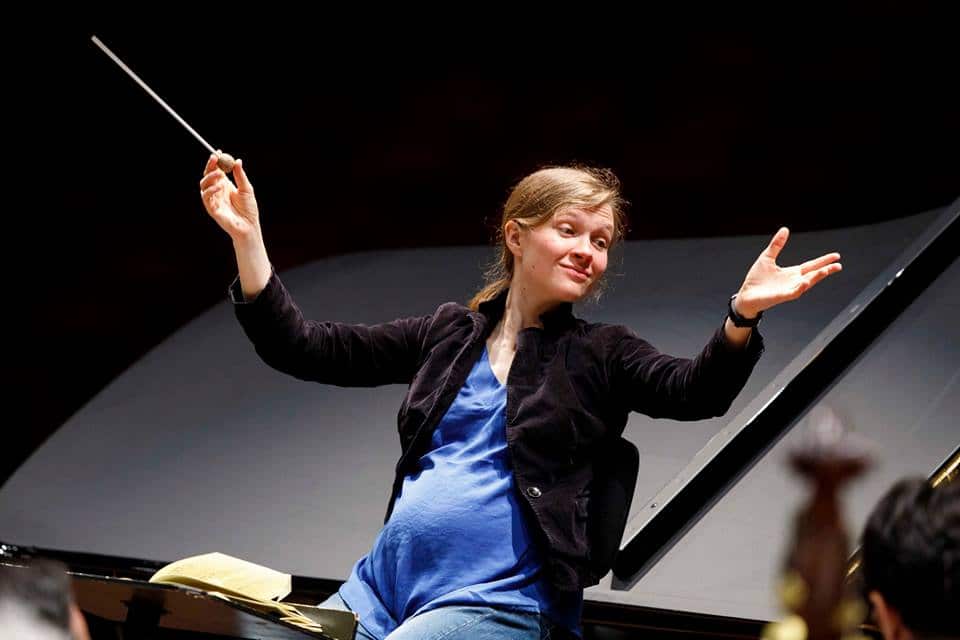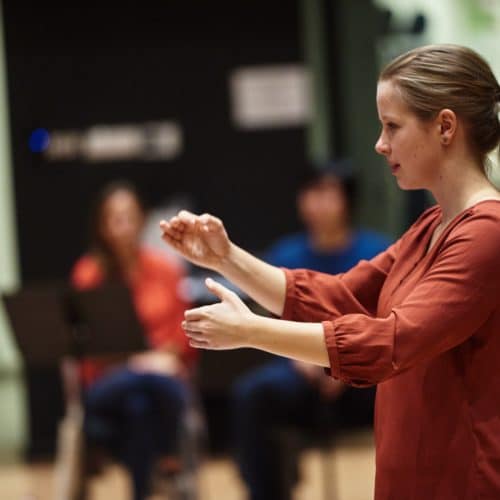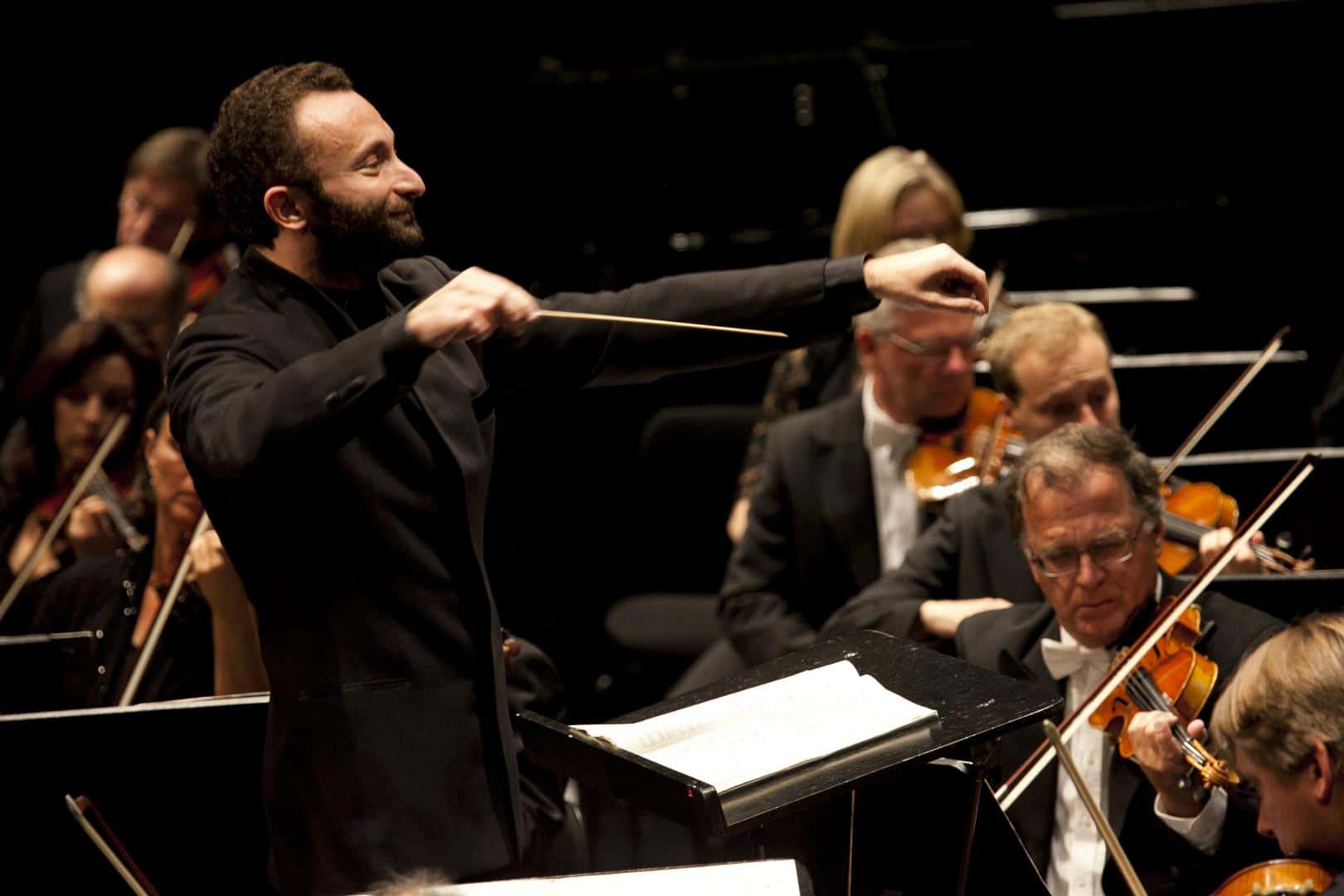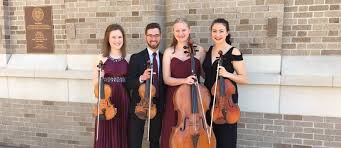You have not heard this before from a music director:

You have not heard this before from a music director:

We have been notified of the death of Deborah Cook, a sought-after soprano of the 1970s and 1980s who performed at major European houses and recorded the title role in Meyerbeer’s opera Dinorah. Among other highlights, she appeared at Covent Garden in the 1976 world premiere of Hans Werner Henze’s We Come to the River.
Philadelphia born, she married a psychiatrist who died soon after and, within a year, made her professional debut as Lucia di Lammermoor. Her international career began at Glyndebourne in 1971, singing Zerbinetta in Richard Strauss’s Ariadne auf Naxos. A member of the Bremen Opera, she sang across Germany, France and Italy for a decade. At Covent Garden she also sang Fiakermilli in Arabella, opposite Kiri te Kanawa. She remarried and returned to the US in 1985.
Deborah was 80 years old and had been suffering from Alzheimers.

Only in America?

“Many of our closest friends and colleagues have found themselves dealing with unexpected health emergencies and hardships,” Kim Noltemy, the Dallas Symphony Orchestra’s president and CEO, says in a release. “This concert will provide funding for a grant program that will give members of the DSO family a way to bridge the gap at a time when they need it most.”
Struggling orchestra and staff members can apply for grants from the fund to “reduce financial stress as their families deal with serious illnesses,” the organization says, adding, “[t]he most visible of those are health emergencies where the difference between the funds provided by long-term disability and financial obligations can be substantial.”
Read on here.
This is the orchestra that paid its last music director a $5 million salary.
Remember the outcry when the Finnish maestro-maker said women could never make it in the podium?
‘Some of them are making faces, sweating and fussing, but it is not getting any better – only worse! They can come [to my masterclasses] and try. It’s not a problem – if they choose the right pieces. If they take more feminine music. Bruckner or Stravinsky will not do, but Debussy is OK. This is a purely biological question.’
Well, Panula has seen the light.
His recent star student, Emilia Hoving is stepping up this week to replace Pablo Heras-Casado with the Finnish Radio Symphony Orchestra.
Emilia, 23, has recently been made assistant to Hannu Lintu at the FRSO.

Amazingly, she hasn’t yet been signed by a certain London agency.
The incoming chief conductor has a well-known aversion to media. He gives no interviews, appears on no TV shows.
For his first season launch, he allowed the Berlin Philharmonic website to carry a so-called interview.
No questions are asked and not much information is volunteered.
Sample: ‘The special feature of the Berliner Philharmoniker is the skill and courage of every single musician, whether solo or tutti, to radiate so much freedom while making music. A freedom that always keeps an eye on the whole structure, a controlled risk in which the great order does not waver, yet which allows a total unleashing at the moment of performance.’
More here, if you’re still awake.

An ‘interview’ like this restores one’s faith in journalism.
The Kuss Quartet have been loaned four Paganini Stradivarius instruments by the Nippon Foundation to play the complete Beethoven Cycle in Tokyo, at Suntory Hall and for a recording.
On May 27 they will try out the instruments at Wigmore for a 1pm BBC concert.
Violist Will Coleman tells Slipped Disc: ‘It’s totally thrilling – the sound makes you see totally new possibilities – new thought and colour.
‘Haunting, ghost-like sounds float out, and then a moment later the most human, from-the-stomach, depth of sound.

Message received:
BANFF, AB, April 30, 2019 – Ten of the world’s finest quartets will compete for the most coveted prize in chamber music at the 13th Banff International String Quartet Competition (BISQC) in Banff, Alberta, Canada. Chosen by a preliminary jury of internationally celebrated musicians, these 10 quartets were selected from a competitive pool of applicants representing 5 continents. They will showcase their skill during five rounds of competition from August 26 – September 1, 2019. The quartets will be competing for over $300,000 in cash and prizes, one of the most generous awards in chamber music internatonally.
The quartets are (in alphabetical order):

• Callisto Quartet (USA)
• Eliot Quartett (Germany / Russia / Canada)
• Marmen Quartet (UK)
• Omer Quartet (USA)
• Quatuor Agate (France)
• Quatuor Elmire (France)
• Ruisi Quartet (UK)
• Ulysses Quartet (Canada / USA / Taiwan)
• Vera Quartet (Spain / USA)
• Viano String Quartet (Canada / USA)